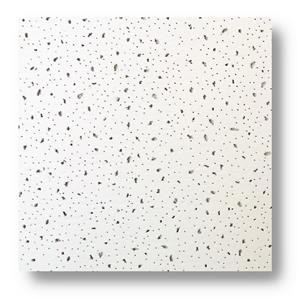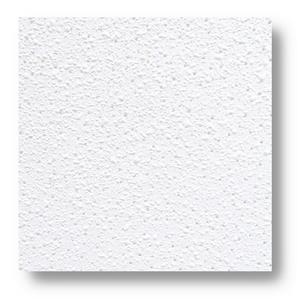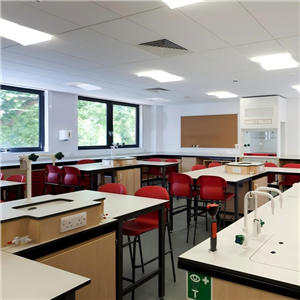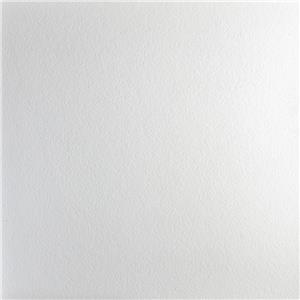Mineral Fiber vs. PVC Ceiling Tiles: Key Differences Explained
At SLD, we understand that choosing the right ceiling tile for your space is more than just a matter of appearance. Whether you’re designing a commercial office, a hospital, or a retail environment, the materials you select can greatly impact acoustics, durability, maintenance, and cost-efficiency. Two of the most popular options on the market today are Mineral Fiber Ceiling Tiles and PVC Ceiling Tiles.
In this article, we’ll help you clearly understand the key differences between Mineral Fiber Ceiling Tiles and PVC alternatives, so you can make the right choice for your next project.
1. Material Composition
Mineral Fiber Ceiling Tiles are manufactured using a blend of mineral wool, recycled paper, and other natural binders. This composition makes them eco-friendly, sound-absorbing, and fire-resistant. At SLD, we take pride in offering high-performance Mineral Fiber Ceiling Tiles that meet international quality and environmental standards.
On the other hand, PVC Ceiling Tiles are made from polyvinyl chloride, a type of plastic. These tiles are lightweight and waterproof, making them a common choice for humid areas. However, their plastic composition may not offer the same acoustic or thermal insulation as mineral fiber.
2. Acoustic Performance
One of the main reasons our customers prefer Mineral Fiber Ceiling Tiles is their excellent acoustic properties. Thanks to their porous structure, these tiles can absorb sound and reduce echo, improving speech clarity in large or crowded spaces.
PVC tiles, in contrast, are less effective at absorbing sound. Because they are non-porous and solid, they tend to reflect sound rather than absorb it, which can lead to a noisy environment—especially in office settings or educational facilities.
3. Fire Resistance
Safety is always a top priority. Mineral Fiber Ceiling Tiles are naturally fire-retardant, with most models at SLD rated Class A in fire resistance. This makes them a preferred option in buildings where fire safety regulations are strictly enforced.
PVC tiles, while durable and waterproof, are combustible. Even fire-rated PVC tiles can release toxic fumes when burned, which is something to consider if your project is in a high-occupancy or sensitive area.
4. Moisture Resistance
This is where PVC tiles take the lead. PVC Ceiling Tiles are 100% waterproof, making them a strong candidate for bathrooms, kitchens, and high-humidity environments. If your project is located in a region with high humidity, PVC may be a better choice for moisture-prone zones.
However, modern Mineral Fiber Ceiling Tiles—especially those supplied by SLD—are also treated for humidity resistance. Our high-performance mineral fiber options maintain their shape and integrity even in damp conditions, making them more versatile than ever before.
5. Aesthetic Flexibility
At SLD, we offer Mineral Fiber Ceiling Tiles in a wide variety of textures, patterns, and edge profiles to suit every interior design style—from sleek modern offices to warm, classic settings. Their subtle, elegant appearance gives a refined look to any ceiling.
PVC tiles, though available in some decorative options, often have a shinier, plastic-like finish that may not be suitable for professional or upscale environments.
6. Installation and Maintenance
Both Mineral Fiber Ceiling Tiles and PVC tiles are relatively easy to install using a standard T-grid system. However, Mineral Fiber Ceiling Tiles require a bit more care during installation to avoid edge damage, while PVC is more resistant to cracking or chipping.
When it comes to maintenance, Mineral Fiber Ceiling Tiles may require periodic cleaning or replacement in case of water damage. PVC tiles, being waterproof, are easily wiped clean—but again, they do not offer the same acoustic or fire performance.
Final Verdict: Which Should You Choose?
If your priorities are acoustic performance, fire safety, and eco-friendliness, Mineral Fiber Ceiling Tiles are clearly the superior choice. They are ideal for offices, schools, auditoriums, hospitals, and conference halls—spaces where comfort, clarity, and safety truly matter.
If your project is heavily exposed to moisture or water, such as kitchens, washrooms, or utility spaces, then PVC tiles may offer some practical advantages.
But in most architectural and commercial applications, Mineral Fiber Ceiling Tiles deliver the best balance of performance, safety, and visual appeal.
Still Not Sure? Let SLD Help You Decide
We at SLD are here to support you in making the best decision for your space. Contact us for free samples, technical datasheets, or a personalized recommendation based on your project’s needs. Our team of ceiling tile experts will guide you every step of the way.
Discover why more professionals trust SLD for their Mineral Fiber Ceiling Tiles — and experience the difference that quality and service can make.




